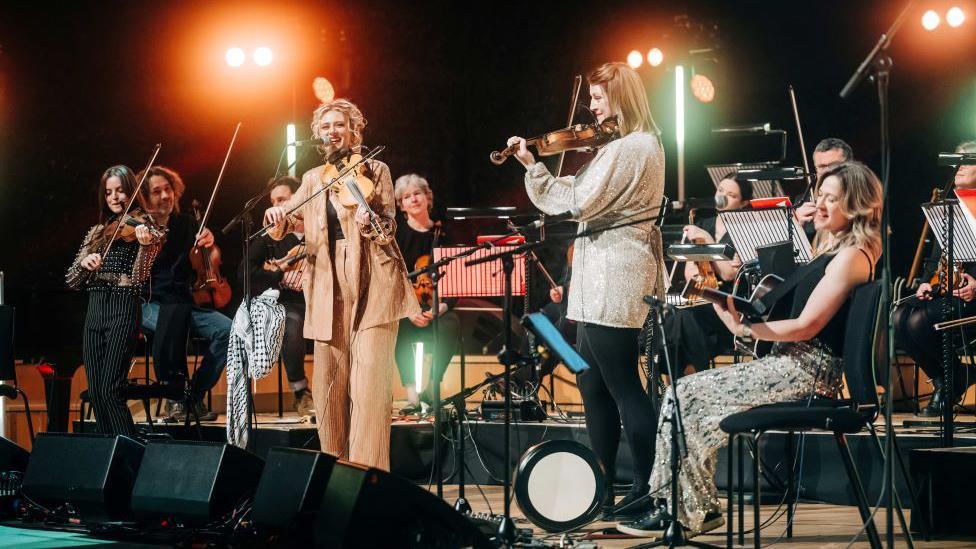Culture and collaboration at Celtic Media Festival
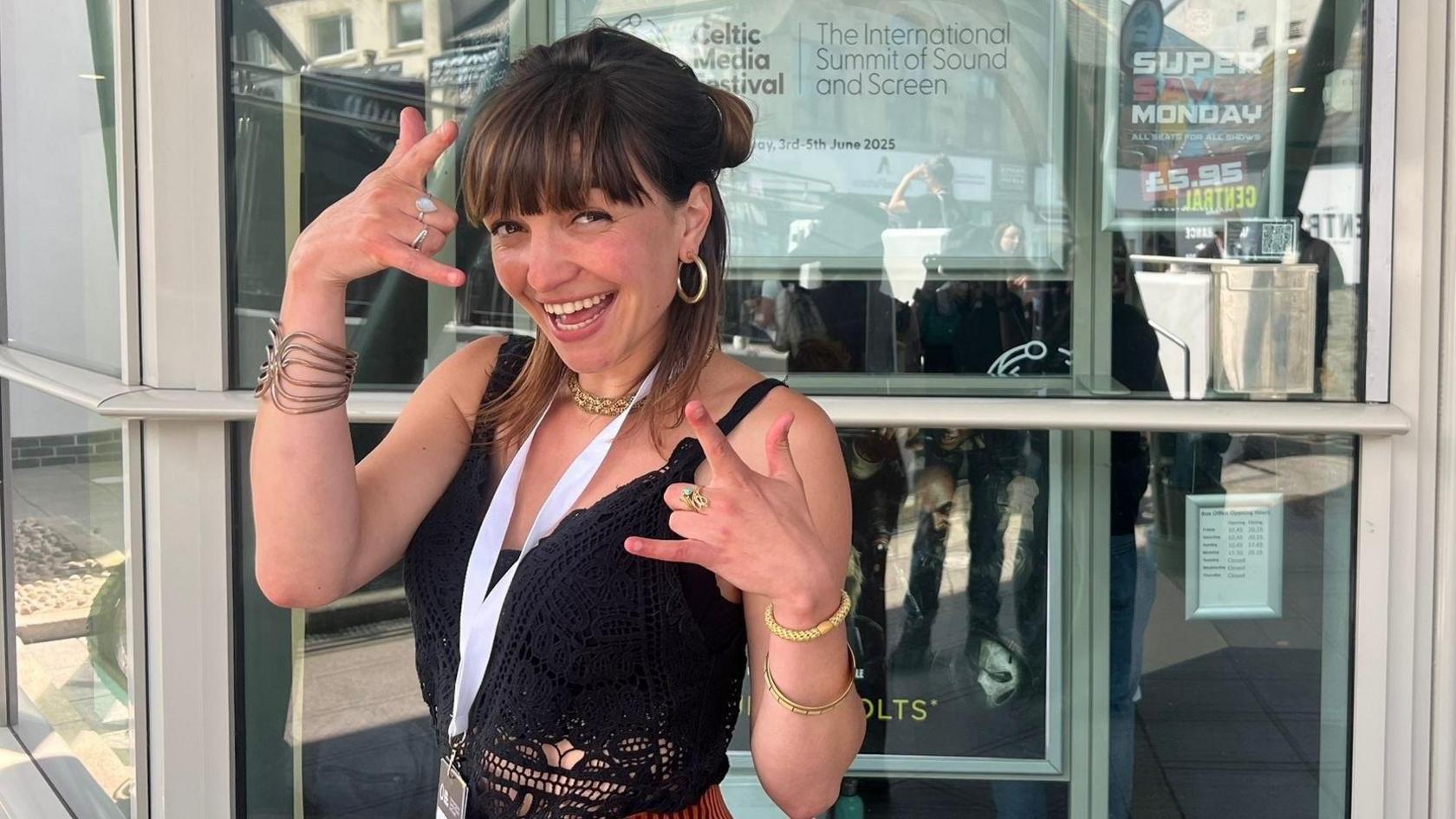
Azenor Kallag from Brittany, France creates content for young people in the Breton language
- Published
Media strategies, indigenous languages and the future of television, with a Celtic twist, have been on the agenda at the Celtic Media Festival this week.
Some of the top media figures from Celtic nations and regions all over Europe came together for the annual event in Newquay, Cornwall.
Over the course of Tuesday, Wednesday and Thursday attendees have had the chance to network alongside a busy schedule, external of panel discussions, workshops, pitching masterclasses and the Torc Awards.
Cathy MacDonald from BBC Radio nan Gàidheal was one of the judges and praised "a growing confidence in our respective languages, enriched by that awareness of our shared cultural heritage within the Celtic nations."
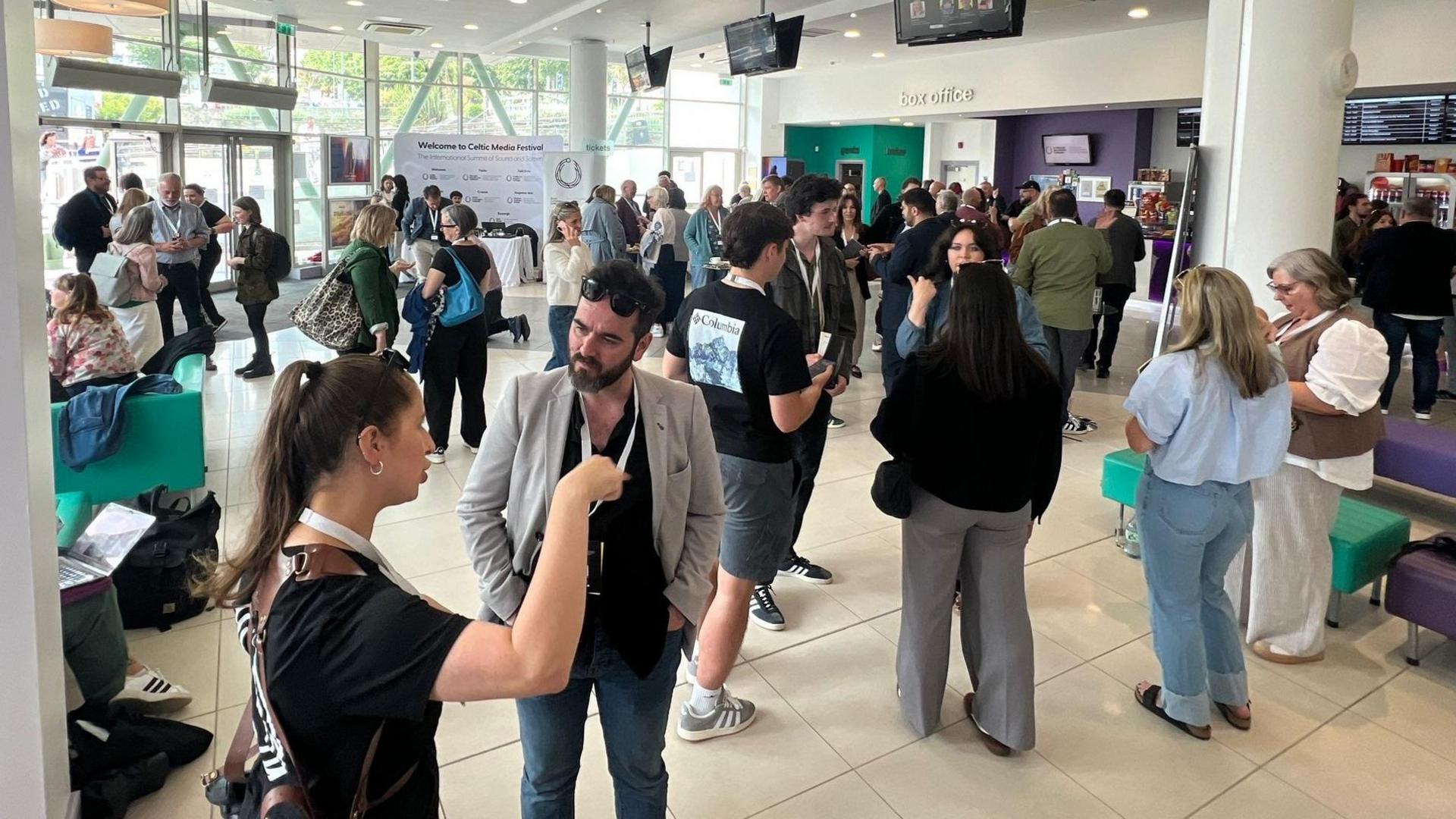
Newquay's Lighthouse Cinema was taken over by festival delegates
Among the talks for delegates were "Tiktok or Telly?", "Celtic Exchange – Supporting the Next Generation in Creative Media" and "A BBC for All of the UK" featuring an address from the BBC's Director of Nations, Rhodri Talfan Davies.
Azenor Kallag from Brittany, France works to create children's programmes in the Breton language, and was excited about increasing the use of social media platforms, saying: "I am thinking how social media maybe could help bring languages through people who are on it.
"I know it's not really healthy to be too much on it but I know that it's important to bring new content to the young people who are on it and give them a way to transmit languages."
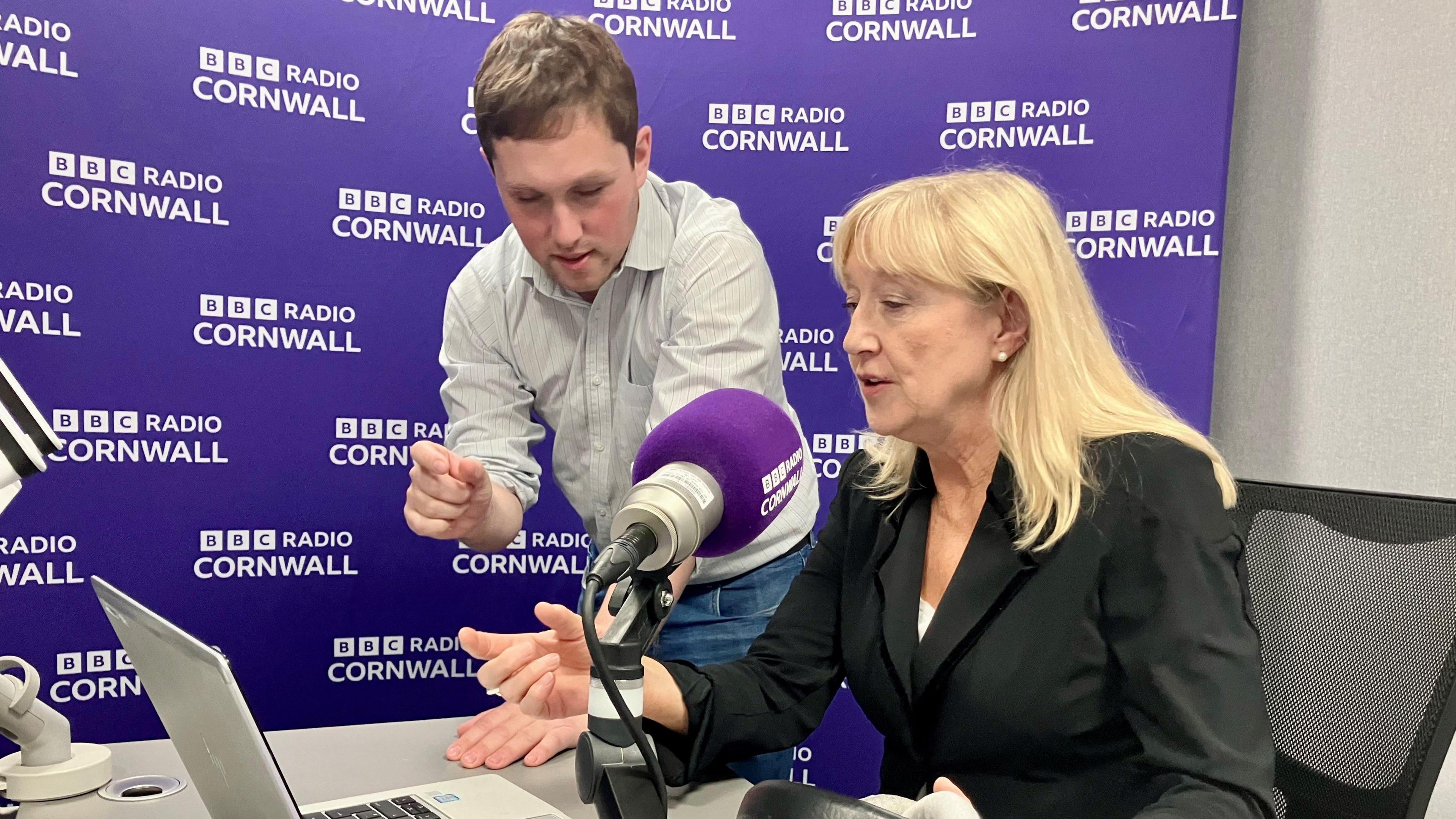
Producer Coinneach Smith and presenter Cathy MacDonald from BBC Radio nan Gàidheal took time away from the festival to deliver their show in Gaelic
That theme of the health of minority languages dominated many conversations at the festival.
Coinneach Smith, producer at BBC Radio nan Gàidheal - the BBC's Scottish Gaelic language radio station - said: "In a media landscape dominated by English, seeing how others tell their own audiences' stories is very valuable, giving you a better understanding of how Scottish Gaelic broadcasting sits within that wider context.
"Each Celtic language and nation's history, context, and modern experience is different - but there's a shared desire to give each community programmes that reflect their identity and voice."
'Stronger and more diverse'
Presenter Cathy MacDonald added: "As an international jury member for some years at the festival, I've observed that categories overall are markedly stronger and more diverse, despite a challenging industry landscape.
"For me this suggests a growing confidence in our respective languages, enriched by that awareness of our shared cultural heritage within the Celtic nations.
"Year on year we see a boldness in tackling difficult subjects within programmes that are all the more meaningful for being produced within the languages of the audiences concerned."
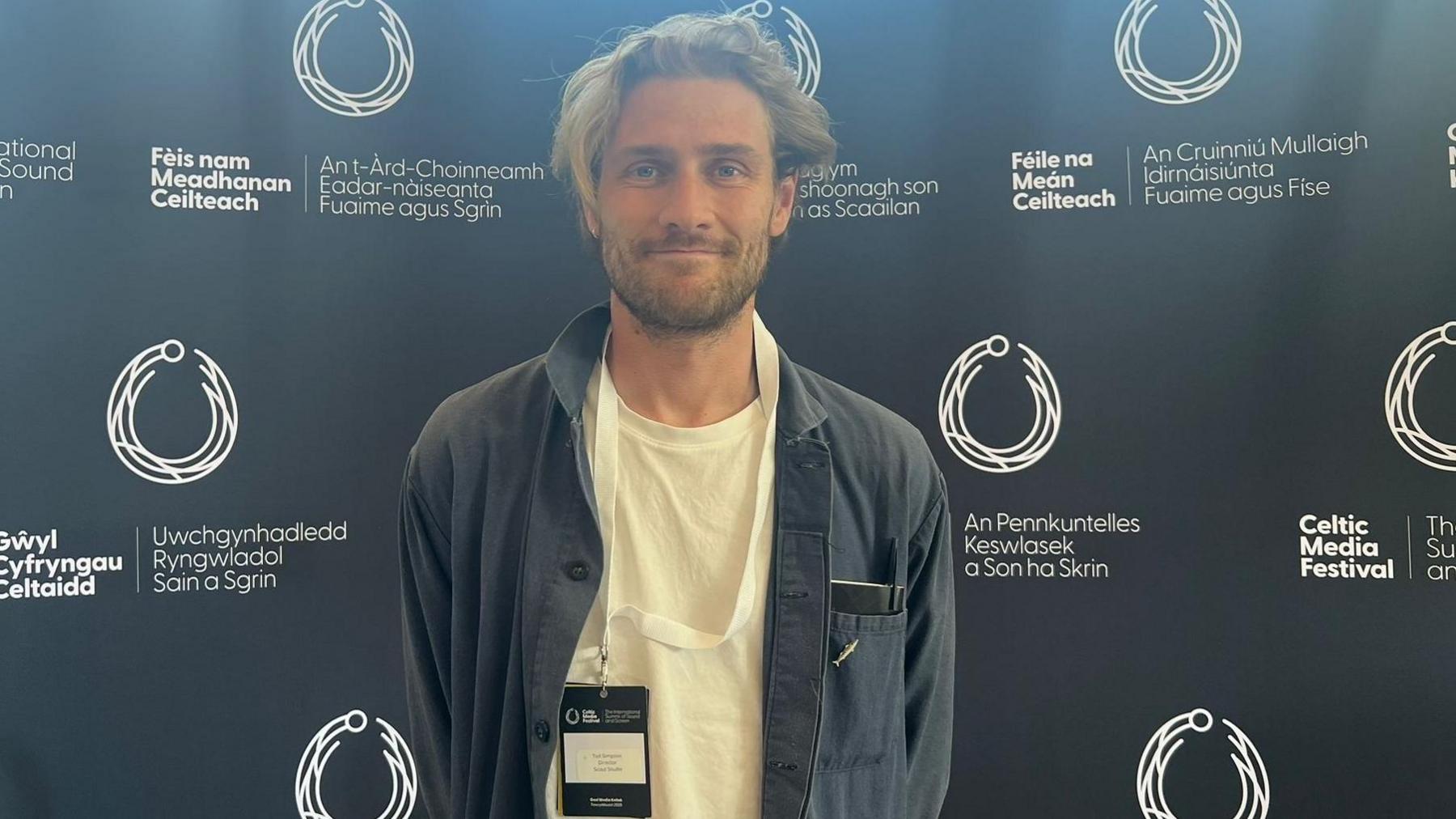
Ted Simpson from Scout Studio is a veteran of several Celtic Media Festivals
Alongside those who have travelled hundreds of miles were representatives of Cornwall, and the Cornish language.
Director and Filmmaker Ted Simpson, external lives in Newquay and has been to a number of Celtic Media Festivals in the past, so could not miss the one on his doorstep.
He said: "It's an interesting time, I think TV over the last few years has been in a tough place but what's really good to see about the Celtic media scene is the collaboration across different nations and the level of openness and access to this festival which is always really refreshing.
"You can strike up a conversation with commissioners really easily and get a real, honest sense of what's happening. But I do think the TV industry is in a tough place at the moment, there's not a lot of money going around."
Executive Editor at BBC Radio Cornwall Emma Clements said it was great to see "the shared pride and creativity" on show, adding: "Serving our communities and representing our distinct language, identity, cultural and sporting achievements not only to where we live but to the rest of the world, is so important.
"We can all reflect together where we come from, we can also work together to build a better future.
"I believe BBC Radio Cornwall plays a crucial role here, not just as a broadcaster representing the true lives of people in Cornwall on a national stage, we are the front door to the BBC, through BBC Introducing and Upload, our jobs and apprenticeship schemes."
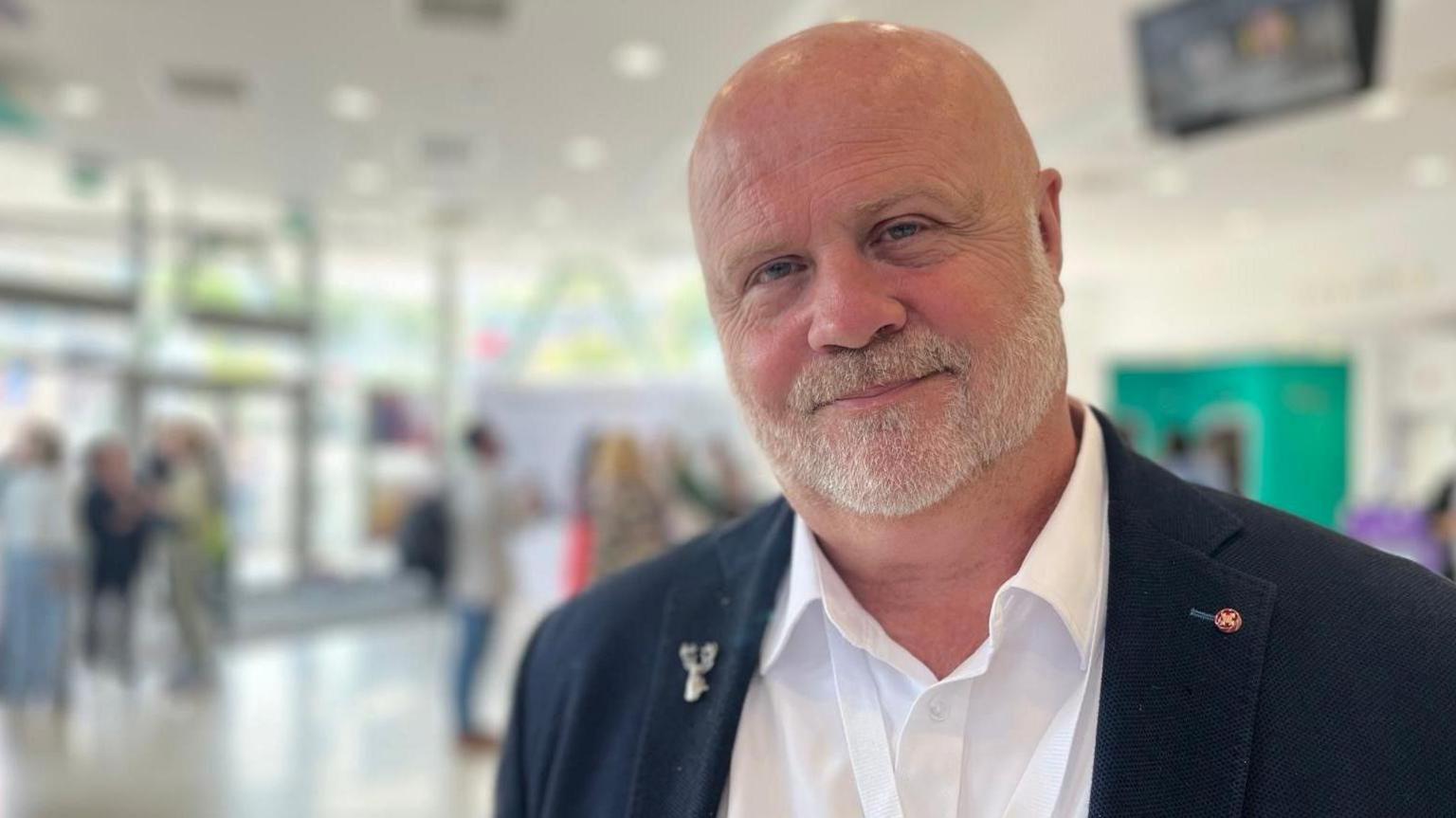
"Together we are stronger" - Emyr Afan is the CEO of Afanti Media, a media company based in Wales
The Celtic Media Festival, external was staged in Cardiff in 2024 and there has been a strong Welsh contingent in Newquay this week.
Emyr Afan is CEO of Afanti Media, an independent media company based in Wales, and said: "Indigenous producers in Welsh or Irish or Gaelic communities need to get together more so we can not only celebrate our creativity in our indigenous languages but also to try to work together more.
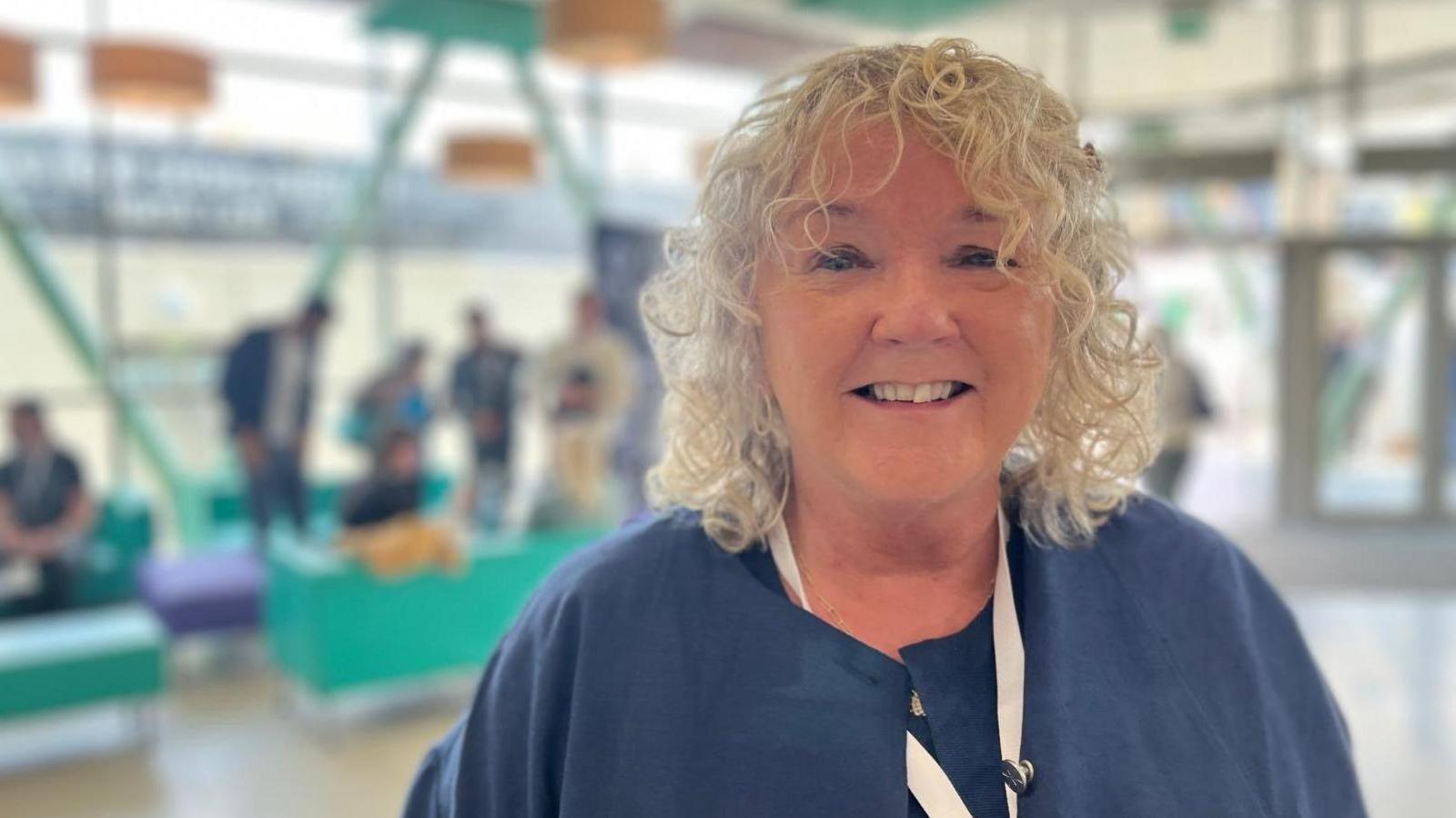
Llinos Wynne is Head of Documentaries and Specialist Factual at S4C in Wales
"Such is the competition on other channels - your Netflixs and your YouTubes - we have to cut through, and money is getting shorter in supply, so therefore the greater the sum of the parts when there's more co-production."
Llinos Wynne, Head of Documentaries and Specialist Factual at the Welsh-language television channel S4C, external had a similar message.
She said: "I think bringing smaller countries together, bringing the Celts together, and being really creative and looking at how we can work together is as important as it's ever, ever been."
The Celtic Media Festival finished with the Torc Awards for Excellence - you can read a full list of the nominees and winners here. , external
Additional reporting by Ajit Gadekar, Coco Bond, Richie Wicks and Ella Cannon.
Follow BBC Cornwall on X, external, Facebook, external and Instagram, external. Send your story ideas to spotlight@bbc.co.uk, external.
- Published16 June 2024
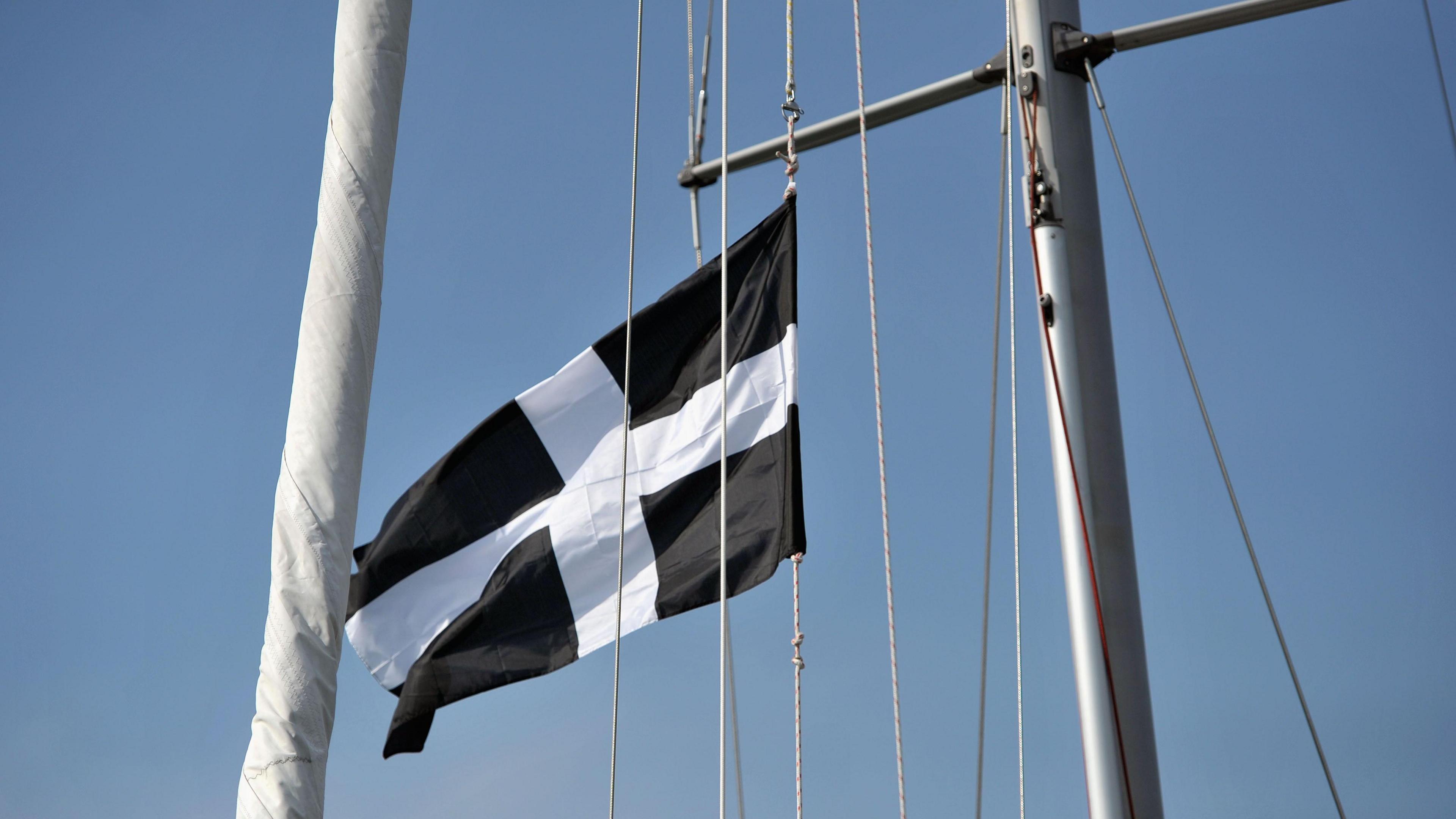
- Published6 May 2017
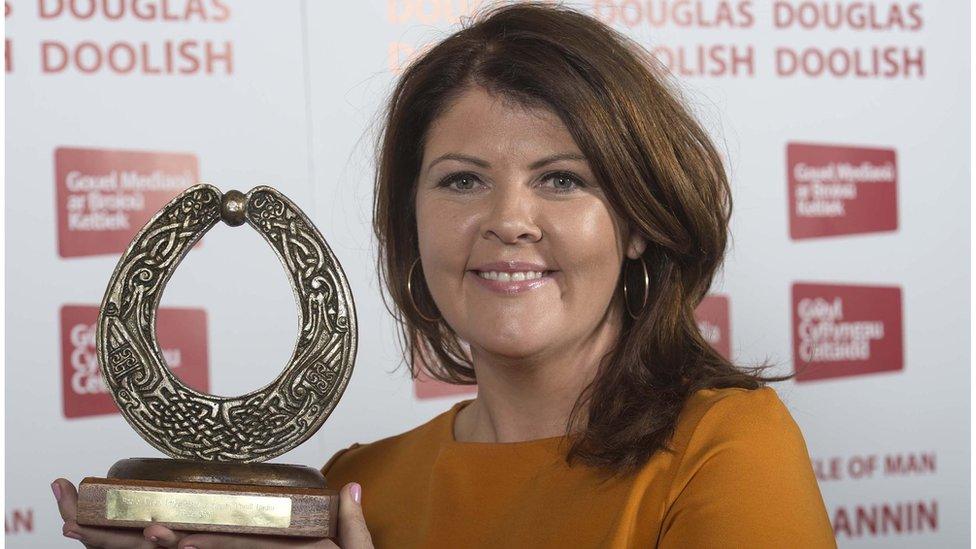
- Published3 February
